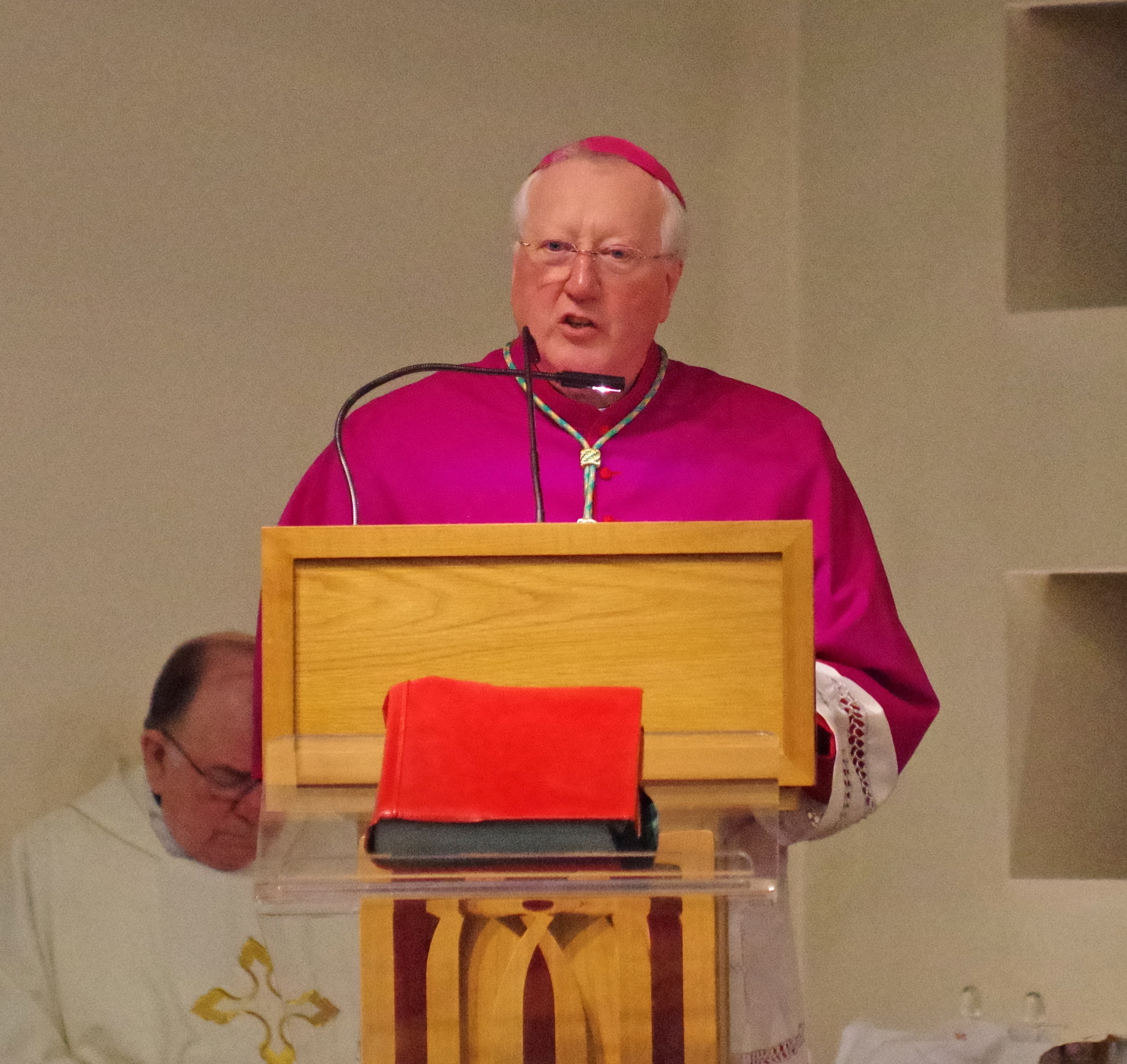The Catholic Bishops’ Conference of England and Wales has issued liturgical advice in the light of the Covid-19 pandemic, while Bishop Terry has added some additional points to clergy and parishioners.
Bishop Terry added the following note to the letter you can read further down the page…
I draw your attention to the following points in addition to the instructions laid down by the Bishops’ Conference.
- Clergy of 70-plus and those with underlying health issues should observe the strong advice on social distancing and adapt their ministry accordingly – they can minister digitally and via telephone.
- Each day Mass should be said in the parish church without a congregation. Do please keep all the churches open and ensure strict hygiene around the door handles and common surfaces. These last two points could form part of your main ministry for the interim period.
- Encourage WhatsApp groups among the old and isolated who are known to you in the parish.
- In this diocese, the following churches have live-streaming of the liturgy…
- St Therese, Ingleby Barwick – https://en-gb.facebook.com/pg/stthereseingleby/videos/?ref=page_internal
- St Peter’s, Scarborough – org.uk/#modal
- Our Lady and St Edward’s, Driffield – tv/driffield
- It is hoped that the cathedral will be uploading liturgies imminently. We’ll have further details as soon as possible.
Catholic Bishops’ Conference Of England And Wales, Liturgical Advice in the light of the Covid-19 Pandemic
The Bishops’ Conference of England and Wales, having consulted the Ordinaries of the Dioceses, has agreed that the cessation of public liturgies should begin from Friday evening March 20 2020.
Because of the situation the Church finds herself in, the obligation for the faithful to attend Holy Mass on a Sunday or Holy Day of Obligation is removed, until further notice.
The following instruction is now given for the celebration of the Sacraments and sacramentals of the Church at this time.
Celebrations of Holy Mass
Priests (parish priest and assistant priests) who hold parochial office should continue to celebrate Mass in a church within their parish without the faithful on a daily basis.
Other priests (ie retired from office or entrusted with a non-parochial ministry) may celebrate Mass without the faithful in a church, chapel or their private home.
Deacons should not participate in these celebrations. The continuing celebration of Mass ensures that the faithful can join in spiritual communion with the priests of the Church.
The Catechism of the Catholic Church states (1364): As often as the sacrifice of the Cross by which ‘Christ our Pasch has been sacrificed’ is celebrated on the altar, the work of our redemption is carried out. Daily liturgical resources for those at home, including those for making a “Spiritual Communion” with the priest, will be available on the CBCEW website.
Information about the live streaming of the celebration of Mass will be made widely available in our dioceses so that the faithful can participate in the prayers of the priest at Mass at home.
A fine example of this is from the National Shrine of Our Lady at Walsingham will continue its full liturgical programme and this will be available to all via the internet at walsingham.org.
Wherever possible, during this period, churches will remain open, especially on Sundays, for individual private prayer, without any organised services, and offering prayer before the Blessed Sacrament.
Baptisms
Baptisms should be deferred until such time that the public health advice is that congregations can gather safely. In case of necessity, baptisms should be celebrated with all the hygiene precautions that have been laid down by the Church in its Covid-19 advice.
Sacrament of Reconciliation
Confession may be offered on request as long as hygiene and social distancing requirements are observed (eg a physical barrier between the penitent and the priest, such as a grille and cloth).
The use of Rite II and Rite III of the Rite of Penance is not permitted as this, by necessity, requires the gathering of people in our churches.
First Reconciliation and First Holy Communion
These celebrations should be postponed until a time that allows for families and friends to gather safely within our churches.
Confirmation
The celebrations of Confirmation should be deferred until such time that the public health advice is that congregations can resume public worship.
Matrimony
If possible, the celebration of the sacrament of Matrimony should be deferred until such time that people can gather in numbers safely. However, if this is not possible and only in the most pressing of circumstances, then those present for the marriage should be restricted to the celebrant, bride and groom and immediate family, and if necessary, the legal Registrar.
Anointing of the Sick
No pastoral visits should be made to people who are self-isolating until the isolation period ends. However, do offer phone support. When anointing the sick, the Oil of the Sick can be applied using a cotton bud which can be burned afterwards (one end for the head and the other for the hands) and the priest extend his hands over the sick person for laying on of hands, without physical contact. This has been confirmed as a valid mode of celebrating the sacraments which involve “laying on of hands.” Visits to people in care homes or hospitals should follow advice from the staff on infection control.
Sacraments of Initiation at the Easter Vigil
This will be dependent on the forthcoming decisions of the bishops for the Holy Week ceremonies.
Funerals
There must be great pastoral sensitivity to this issue. The funeral service should take place at the graveside or at a crematorium, subject to the conditions laid down by the cemetery or crematorium authorities. Arrangements should be made for a Mass to be celebrated in memoriam when congregations are allowed to gather.
Reverend Canon Christopher Thomas, General Secretary
March 18 2020
This advice will be reviewed and developed as necessary weekly.

